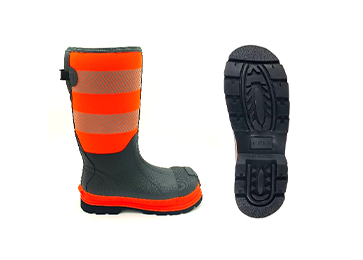The Practicality and Style of Farmers’ Wellington Boots
Wellington boots, often affectionately known as “Wellies,” are a quintessential piece of footwear, especially for farmers and those who work in rural settings. With their distinctive tall design and waterproof capabilities, these boots have become indispensable gear for anyone engaged in outdoor activities, particularly in muddy, wet, or unpredictable weather conditions.
History and Evolution
The origins of Wellington boots can be traced back to the early 19th century when they were popularized by the Duke of Wellington, Arthur Wellesley. Originally made from leather, these boots were designed for cavalry use and marked a significant departure from the low-cut boots of the time. As technology progressed, so did the materials used for these boots, leading to the introduction of rubber in the late 19th century. This innovation allowed for the mass production of Wellington boots, making them accessible to a broader audience, including farmers who needed durable footwear for their daily tasks.
Features of Farmers’ Wellington Boots
Farmers’ Wellington boots are specifically designed to meet the demands of agricultural work. Firstly, the waterproof nature of these boots protects farmers from waterlogged fields and wet weather. This feature is essential, especially in regions where muddy conditions prevail. Made from durable rubber or PVC, these boots provide a reliable barrier against moisture, ensuring that feet stay dry throughout the day.
Another important feature is the slip-resistant sole, which is crucial for preventing slips and falls in muddy or slippery conditions. Farmers often navigate through uneven terrain, and good grip can make all the difference when handling livestock or operating machinery. Additionally, many Wellies come with reinforced toe caps and shank support, offering added protection and comfort during long hours of work.
Comfort is also a significant consideration. With various designs available, including insulated versions, farmers can choose boots suited to the season. Insulated Wellingtons are particularly popular during the colder months, keeping feet warm in frigid conditions while still providing the necessary waterproofing.
farmers wellington boots

Fashion Trends and Versatility
While Wellington boots are rooted in practicality, they have also found their way into fashion. Today, there is a wide range of colors and patterns available, allowing farmers to express their personal style while adhering to work requirements. From classic green to vibrant hues and stylish prints, these boots have transcended their utilitarian origins to become a fashion statement.
Moreover, the versatility of Wellington boots allows them to be worn beyond the farm. Many people wear them for outdoor activities like hiking, gardening, or at festivals, where muddy conditions are common. The combination of practicality and style has contributed to their popularity, reinforcing the idea that functional footwear doesn’t have to compromise on aesthetics.
Care and Maintenance
To ensure longevity, proper care and maintenance of Wellington boots are essential. Regular cleaning after use, especially in muddy conditions, prevents the accumulation of dirt and grime that can degrade the material. Using a soft cloth and warm, soapy water is typically sufficient. Additionally, it's advisable to store these boots in a cool, dry place, away from direct sunlight, to prevent cracking and damage.
Conclusion
Farmers’ Wellington boots encapsulate the perfect blend of functionality and style. They serve as a vital tool for farmers, protecting them from the elements while offering durability and comfort. As the agricultural landscape continues to evolve, so too will the designs and applications of these versatile boots. Whether tending to crops, caring for livestock, or simply enjoying outdoor activities, a good pair of Wellington boots remains an essential investment for anyone who values practicality and style in their footwear. The simple yet effective design of Wellies continues to make them a beloved choice for farmers and outdoor enthusiasts alike.
-
Stay Dry in Any Condition with WadersNewsJul.17,2025
-
Elite Performance with Camouflage Combat BootsNewsJul.17,2025
-
Dry and Comfortable with Green Rubber Garden ShoesNewsJul.17,2025
-
Convenient Protection with Foldable RainbootsNewsJul.17,2025
-
Comfort and Protection with Neoprene Work BootsNewsJul.17,2025
-
Brighten Rainy Days with Floral Rain BootsNewsJul.17,2025
-
Safety Wellies: The Ultimate Combination of Protection, Comfort, and VisibilityNewsJun.19,2025











